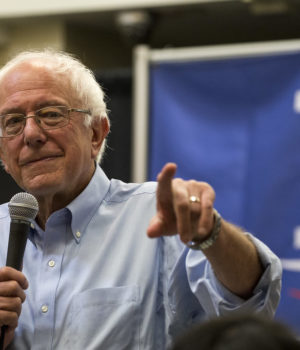Written by Joey Slusher
Bernie Sanders has become a modern household name. He is synonymous with concepts like free college, universal healthcare, and democratic socialism- but why? Who is Bernie Sanders? Why have his positions come to define a rapidly expanding part of the political spectrum? In this column, I will be seeking to answer these questions and hopefully more!
To start, Bernie Sanders was born to Jewish immigrants in Brooklyn in 1941. Sanders went on to attend Brooklyn College and the University of Chicago. During his college years in the 1960s, he became involved in a number of civil rights organizations, leading a number of civil rights movements in and around his schools. Eventually, Sanders moved to Vermont and ran an unsuccessful campaign for Mayor of Burlington but would go on to win in 1981. Nine years later, he won election to the United States House of Representatives, and in 2006 he ran a successful campaign as an independent for the United States Senate.
In Congress, Sanders has created quite a reputation for himself. He has openly expressed that he is a Democratic Socialist, supporting governmental regulation of the economy, higher taxes on corporations and the wealthy, and major social policy reforms in areas like for-profit health care and higher education debt. More recently, Sanders and a number of other members of Congress wrote and proposed the Green New Deal, a piece of legislation that would create rigorous goals and sweeping new policies in the name of fighting climate change.
What has gained Senator Sanders the most fame was his run for president in 2016. He saw broad support from a number of different socioeconomic groups. Many young Democrats during the election threw their support behind Sanders due to his policies on college tuition debt forgiveness. Surprisingly, data showed that a large number of conservative, low income groups who typically supported Republican candidates supported Sanders’ candidacy due to his reform plans for the welfare systems and other social programs.
Much of this support has spread into his 2020 Presidential campaign as well. Recent polls show that in a crowded field of ten Democratic candidates, the 78-year-old Senator holds 14 percent of the Democratic vote. He consistently holds his place as the most progressive of the ten possible nominees and therefore holds that part of the electorate. For the most part, Senator Sanders is running the same campaign as in 2016. He still advocates for social justice-oriented policy positions including universal healthcare, free college, and higher taxes on the wealthiest one percent of our society.
That being said, this time around Sanders is making the argument that his policies and his progressive populism are the only way the Democrats can defeat President Trump and the Republican Party in 2020. We will just have to wait until the Democratic primary elections are over to see whether the party and its supporters think so too.




